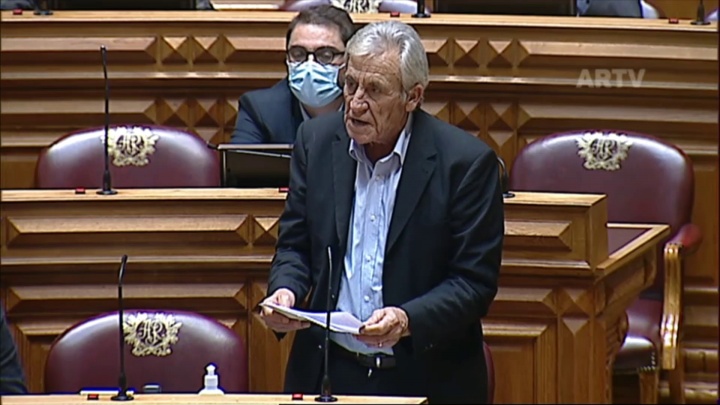It is clear to us that this Budget does not answer the Country's structural problems or the new problems arising from the epidemic. That is why we say that we do not surrender the battle before fighting it.
The aim of PCP's decision to abstain [on the Budget] in general is to enable confrontation between national problems and the alternative that exists to answer them.
Our decision must be understood, not as an end point, but as an imperative to find the solutions that the country needs, even noting the Government's systematic refusal to move in this direction.
Solutions that constitute a national emergency and will have to go beyond the Budget, with the general increase in wages for all workers, the repeal of the grievous norms of labour legislation, support for national production and other measures that are needed.
It is useless to say that this is a Budget with a strong social approach or support for the economy if there are no or insufficient measures that give concrete expression to these objectives.
The first question I would like to ask you is this. At a time when all economic and social problems are worsening and when it is necessary to intervene to counter this course, how can the Government continue to give priority to reducing the deficit and not to the country's needs and to a more robust growth of the economy and employment?
If this is a wrong option under any circumstances, it becomes particularly serious and incomprehensible in the current situation.
This option denies the country about 6 billion euros that are needed for the response to national problems.
The debate in the specifics has to be held on the real solutions for the country, without any illusion that other criteria may determine the path of this Budget.
The PCP will insist on proposals to implement these solutions. The Government and the PS are responsible for clarifying the options they want to make and the convergences with which they want to support them.
Will the government and the PS converge with the PCP in the valorisation of public services, especially in the strengthening of the NHS against the plunder by economic groups, in the hiring and employment ties of thousands of professionals in shortage, in the valorisation of their rights and careers?
Will the government and the PS, converge with the PCP in the valorisation without discrimination of workers of essential services in sectors such as health, security forces and services, fire-fighters, social equipment and others?
Will they converge with the PCP in the strengthening of social protection, in the valorisation of unemployment benefits and in responding to young families and the elderly with the creation in 2021 of vacancies in the public network of daycare centres and nursing homes?
Will they converge with the PCP in solutions that give priority to MSMEs instead of economic groups, in defence of economic activity and jobs?
Will they converge with the PCP for greater fiscal justice, easing the taxation of lower and middle incomes and effectively taxing the profits of economic groups?
Is the Government going to intervene to put an end to PPPs and so that the strategic sectors do not continue to be at the mercy of the interests of monopoly groups, whether in CTT, ANA-Aeroportos, TAP or Novo Banco?
The answers to these questions contain some of the clearest examples of the options that are needed to defend the interests of the People and the Country.
It is in the face of these concrete options that the PS has to clarify whether it is with the PCP that it will converge or whether its objectives are other and other are its convergences.
On our part, we have a commitment. To the workers who saw their wages cut or frozen, to those who lost their jobs, to those who see the bankruptcy of their small businesses, to people with disabilities, to NHS users who see their medical appointments and exams postponed while the powerful remain untouched in their profits, dividends and privileges.
